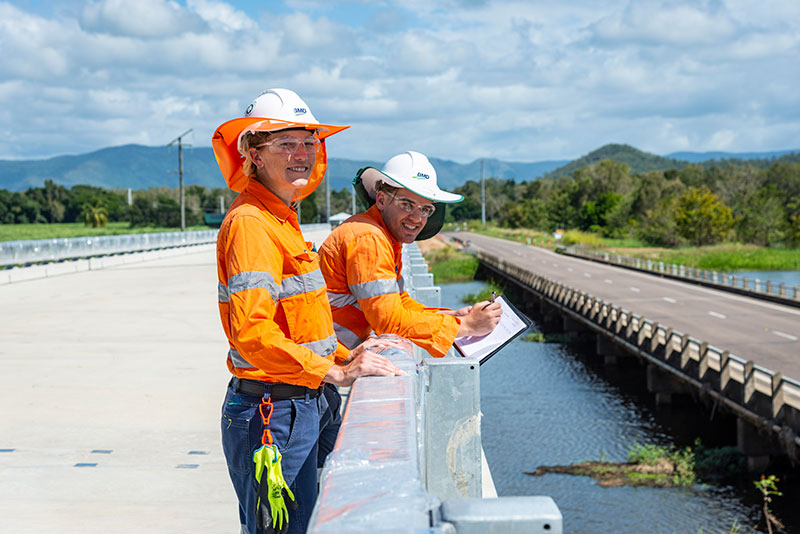National Water Week Spotlight Series: Luke Ingham
Meet Luke Ingham, Senior Project Manager on the Sunbury Sewer Duplication in Victoria. To celebrate National Water Week and BMD’s work within the sector, we took the time to get to know Luke and what he loves about working in the sector.
Q: What do you enjoy about working in the water sector and the role you have in being part of the solution?
A: Working in this sector has given me a strong appreciation for the vast amount of infrastructure that is buried beneath the ground which connects all houses and developments. There is so much work that goes into this buried infrastructure that without, these communities just wouldn’t be able to exist.
Q: What are some key water infrastructure projects you’ve been involved in, and how have they contributed to the bigger picture of water resource management?
A: I’m currently working on is the Sunbury Sewer Duplication for Greater Western Water in Victoria. The project involves duplicating the current Sunbury outfall which was built in the 1970’s and will allow for future growth in the area. The project consists of ~0.975 kilometres of pipeline (DN750 and DN1100 GRP) from Powlett Street in Sunbury to the Sunbury Recycled Water Plant.
Reflecting on my work in the sector, I would say the most memorable project was the replacement of the 26 kilometre of asbestos water rising main in the remote desert community of Laramba in the Northern Territory. The infrastructure upgrade increased water flows into the community and increased reliability of supply as the old shallow buried asbestos main was constantly failing. It was a challenging project, involving managing risks including the logistics of mobilising to a remote location in Central Australia, procurement and quality assurance of a large volume of pipes, extremely tight program and running our own construction camp.
Q: What are the main challenges you are facing on the Sunbury project?
A: On the Sunbury Sewer Duplication project, we have had some challenges with managing works in close proximity to stakeholders. This is due to a vast majority of the works taking place inside easements which run through properties. With experience in this space and through our collaborative approach, we have been working to construct infrastructure in confined corridors while not negatively impacting the day to day lives of the landowners.
Q: What advice would you give to aspiring civil construction engineers who are interested in specialising in water infrastructure projects?
A: Specialising in the water and wastewater infrastructure projects will unlock your potential to travel to projects in all corners of Australia and the world.
Q: Water has a vital role in connecting us all. How can the community do their part to improve our water supply?
A: We all have a role to play in taking ownership of the waste we generate. Flushing something down the sink or washing chemicals down a drain doesn’t get rid of the problem as you’re just moving it further downstream. This sort of knowledge is vital so we can all understand the impact on our critical water supplies.
Back to news



